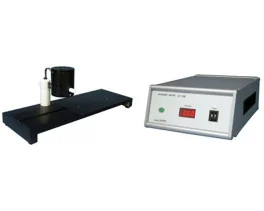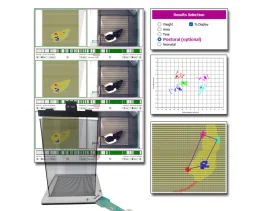Authors
JJ.Luszczki, A.Wlaz, S.Karwan, M.Florek-Luszczki
Lab
Medical University, Institute of Rural Health, LUBLIN, POLAND
Journal
European Journal of Pharmacology
Abstract
The aim of this study was to determine the effect of WIN 55,212-2 mesylate (WIN – a non-selective cannabinoid CB1 and CB2 receptor agonist) on the protective action of four second-generation antiepileptic drugs (lamotrigine, oxcarbazepine, pregabalin and topiramate) in the mouse maximal electroshock seizure model. Tonic hind limb extension (seizure activity) was evoked in adult male albino Swiss mice by a current (sine-wave, 25 mA, 500 V, 50 Hz, 0.2 s stimulus duration) delivered via auricular electrodes. Drug-related adverse effects were ascertained by use of the chimney test (evaluating motor performance), the step-through passive avoidance task (assessing long-term memory) and the grip-strength test (evaluating skeletal muscular strength). Total brain concentrations of antiepileptic drugs were measured by high-pressure liquid chromatography to ascertain any pharmacokinetic contribution to the observed antiseizure effect. Results indicate that WIN (5 mg/kg, i.p.) significantly enhanced the anticonvulsant action of lamotrigine (P<0.05), pregabalin (P<0.001) and topiramate (P<0.05), but not that of oxcarbazepine in the maximal electroshock-induced tonic seizure test in mice. Furthermore, none of the investigated combinations of WIN with antiepileptic drugs were associated with any concurrent adverse effects with regards to motor performance, long-term memory or muscular strength. Pharmacokinetic characterization revealed that WIN had no impact on total brain concentrations of lamotrigine, oxcarbazepine, pregabalin and topiramate in mice. These preclinical data would suggest that WIN in combination with lamotrigine, pregabalin and topiramate is associated with beneficial anticonvulsant pharmacodynamic interactions in the maximal electroshock-induced tonic seizure test.
BIOSEB Instruments Used:
Grip strength test (BIO-GS3)

 Douleur - Allodynie/Hyperalgésie Thermique
Douleur - Allodynie/Hyperalgésie Thermique Douleur - Spontanée - Déficit de Posture
Douleur - Spontanée - Déficit de Posture Douleur - Allodynie/Hyperalgésie Mécanique
Douleur - Allodynie/Hyperalgésie Mécanique Apprentissage/Mémoire - Attention - Addiction
Apprentissage/Mémoire - Attention - Addiction Physiologie & Recherche Respiratoire
Physiologie & Recherche Respiratoire




































 Douleur
Douleur Système Nerveux Central (SNC)
Système Nerveux Central (SNC)  Neurodégénérescence
Neurodégénérescence Système sensoriel
Système sensoriel Système moteur
Système moteur Troubles de l'humeur
Troubles de l'humeur Autres pathologies
Autres pathologies Système musculaire
Système musculaire Articulations
Articulations Métabolisme
Métabolisme Thématiques transversales
Thématiques transversales Congrès & Meetings
Congrès & Meetings 